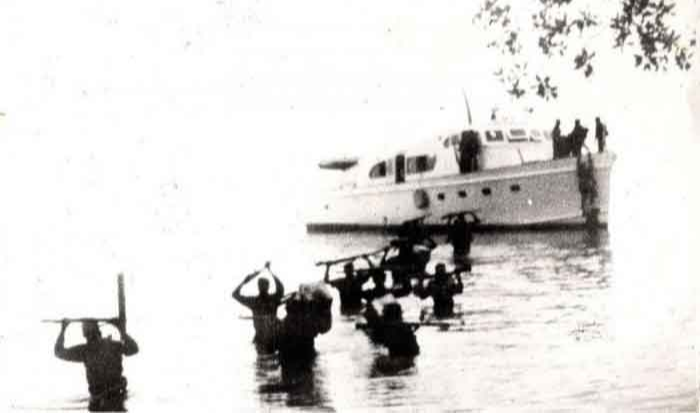The landing 68 years ago of 82 members of the expedition in the eastern part of the country, on the Granma yacht, became a turning point in the history of Cuba, marking the beginning of the guerrilla struggle for complete independence.
On the morning of December 2, 1956, these young men, led by Commander Fidel Castro, disembarked in a mangrove area in Las Coloradas, a remote region of the current province of Granma.
The expedition had set sail on November 25 from Tuxpan, Mexico, aboard the Granma, a yacht built in 1943, with a length of 19.25 meters and a width of five meters.
Although the ship could only accommodate 20 people, it managed to transport all of them, determined to liberate Cuba from the tyranny of Fulgencio Batista.
The rough seas, engine problems on the damaged ship, the excessive weight, and the fall of a man overboard prolonged the journey, delaying the originally scheduled arrival date of November 30.
This was done to coincide with the armed uprising in Santiago de Cuba, led by Frank País, who aimed to divert the attention of the military forces and create an atmosphere of insurrection throughout the country.
However, the plan failed, and the expeditioners found themselves surrounded by the Batista army and air force. With great difficulty and heavy losses, they managed to reach the Sierra Maestra, the main mountain range of the island.
After being surprised and scattered by the Batista troops, the young men regrouped and formed the core of the Rebel Army, which fought against the dictatorship in the eastern mountains of the island until the revolutionary triumph on January 1, 1959.
The survivors of the post-landing fighting formed the foundation of the Revolutionary Armed Forces (FAR), which were established after the victory on January 1, by Army General Raúl Castro, through the merger of the rebel forces with the workers’, peasants’, students’, and university militias. Therefore, Cuba also celebrates FAR Day on December 2.


